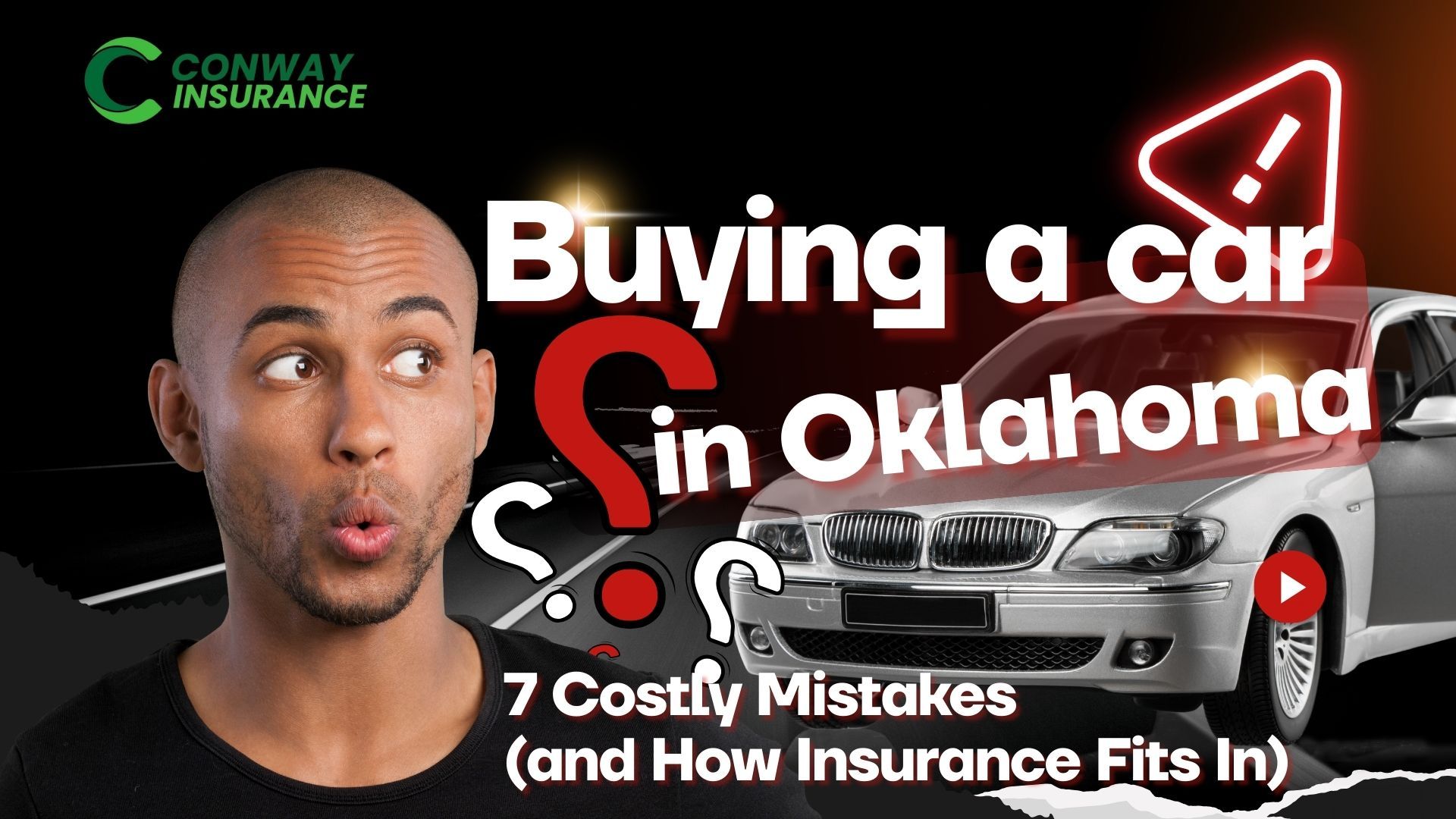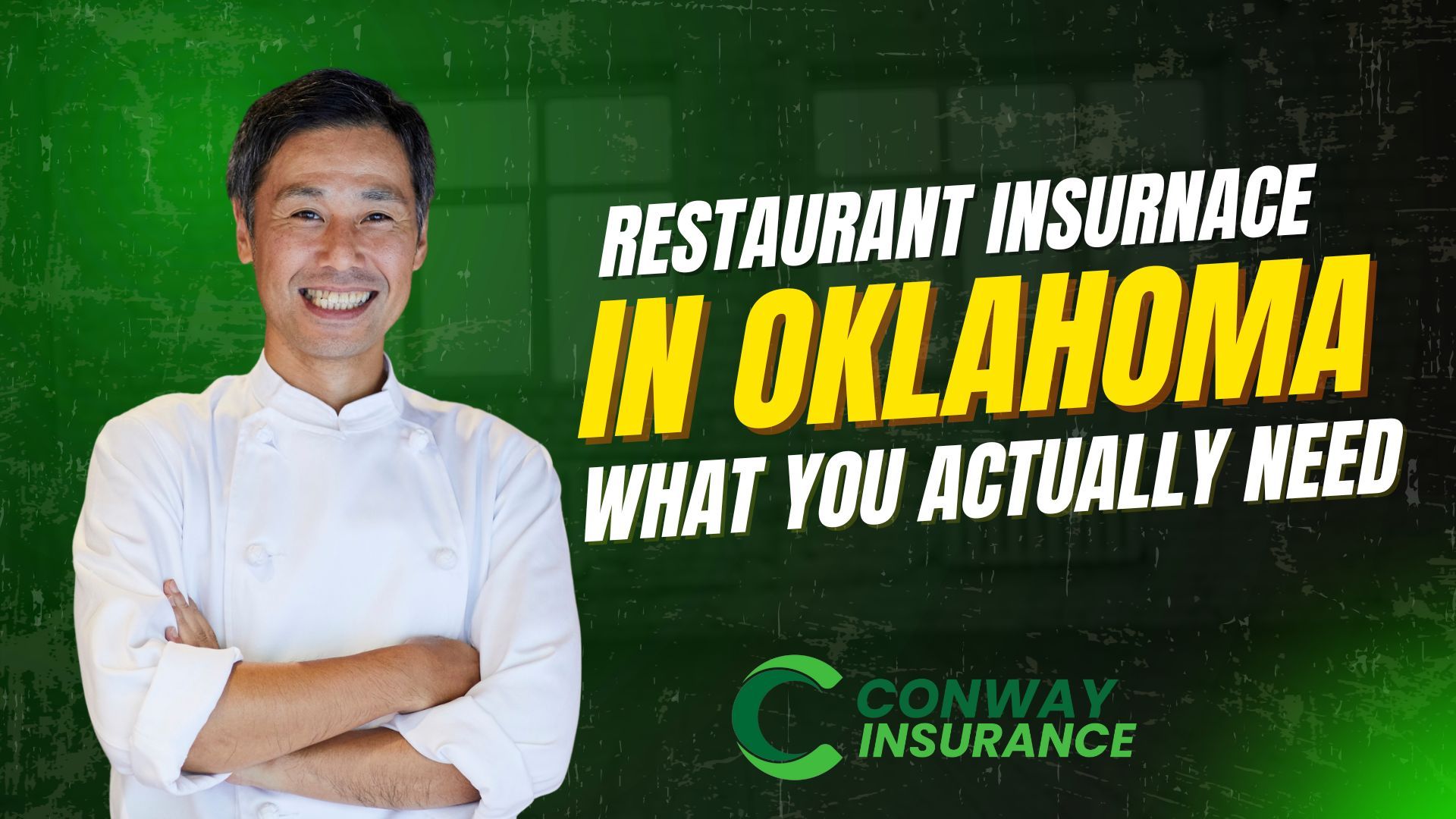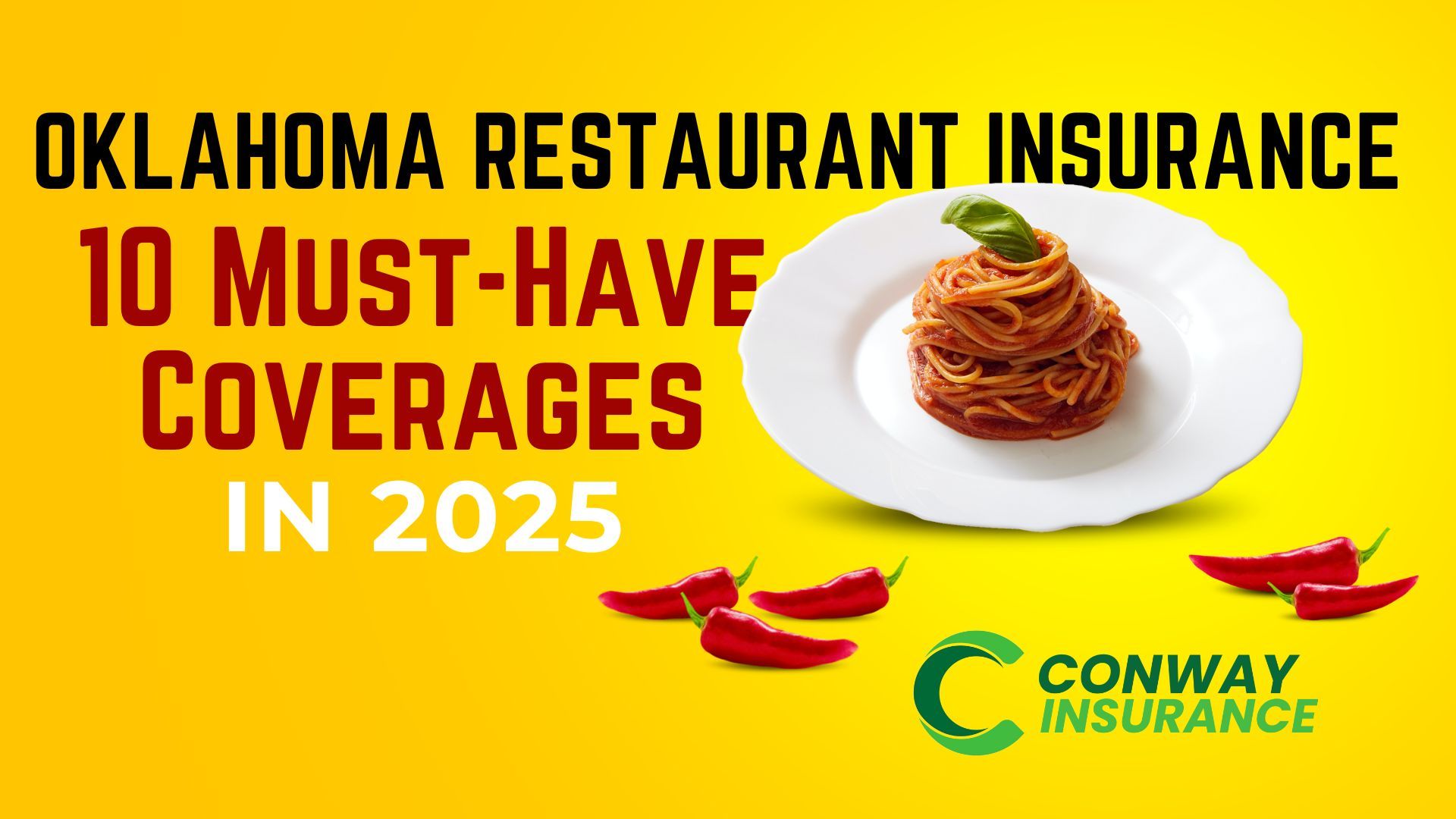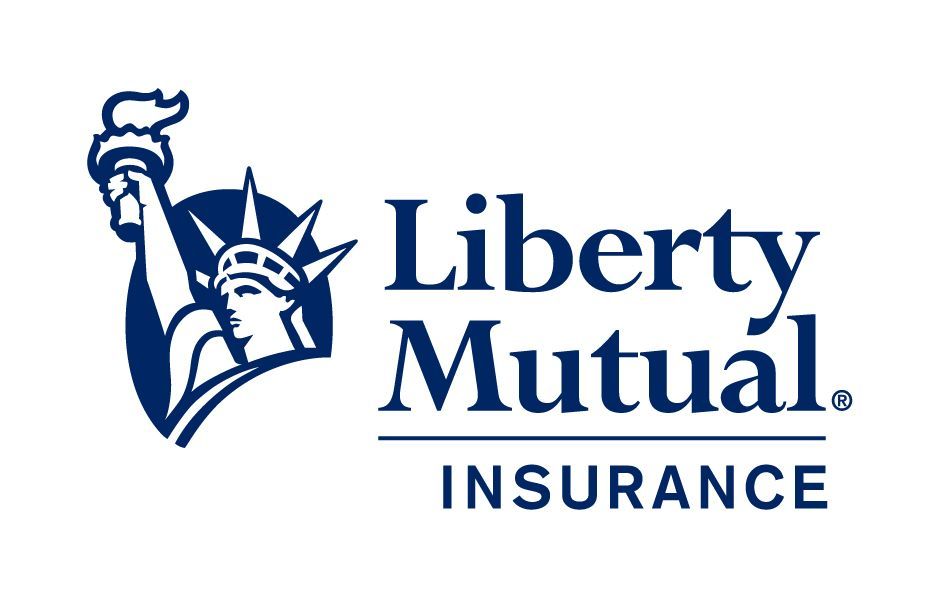Blog
Stay up-to-date with our most recent news.

Auto insurance discounts can feel like Bigfoot — everyone talks about them, and if you’ve spent time in Broken Bow or Hochatown, you know some folks swear they’ve seen one. But actually finding a discount that applies to you? That’s another story. At Conway Insurance, we help Oklahomans cut through the gimmicks and find the discounts that are real, practical, and can actually lower your bill. Whether you’re in Oklahoma City, Edmond, Norman, Midwest City, Tulsa, or down in Broken Bow, here’s what you need to know about saving money without sacrificing protection. If you’re looking for affordable auto insurance in Oklahoma without cutting corners, you’re in the right place. TL;DR – Quick Guide to Oklahoma Auto Insurance Discounts Looking for affordable auto insurance in Oklahoma without cutting coverage? Here are the biggest ways Oklahomans save: 🎓 Good Student – Teens/college drivers with B average or better. 🚗 Multi-Car & Multi-Policy – Biggest savings for families, bundles, or renters + auto. 📱 Safe Driver / Telematics – Drive safely, get rewarded (Progressive Snapshot, GEICO DriveEasy). 💻 Auto-Draft & Paperless – Small but easy savings for e-sign and autopay. 🛡️ Loyalty & Continuous Coverage – Stick with your carrier, avoid lapses, earn better pricing. 🏠 Bundle with Renters/Home – Even a small renters policy can drop your auto rates. 🎖️ Military Discounts – Available with carriers like GEICO for active, retired, Guard/Reserve. 🧾 Defensive Driving & Driver’s Ed – Great for teens, mature drivers, or ticket clean-up. ⚡ Bonus Discounts – Hybrid/EV, early renewal, prior carrier, professional group credits. 👉 Not all discounts apply to all drivers; eligibility varies by carrier and may change at renewal. We’ll shop Progressive, GEICO, Safeco, Mercury, NatGen, and more to find what fits you. Why Discounts Get Confusing Carriers love to advertise “up to 20% savings,” but here’s the fine print: not every discount applies to every driver. That’s why one person leaves smiling, while another wonders why their rate didn’t budge. And let’s be honest — it’s frustrating when you see ads promising huge savings, but your own quote barely changes. Sound familiar? As an independent agency, Conway Insurance shops Progressive, GEICO, and other trusted carriers to match you with the discounts you actually qualify for — no false promises.

You’ve driven up to a car dealership in Edmond, Norman, Tulsa, or one of the hundreds across Oklahoma for a test drive — fallen in love with the leather seats, the new-car smell, and the salesperson’s “today-only deal.” You’ve convinced yourself the monthly payment isn’t that bad. You know the look — that “today-only deal” grin. Then come the tag fees… and that insurance quote you didn’t see coming. Buying a car isn’t just about the test drive and financing; it’s about understanding the hidden costs that follow you home — like insurance. 🧾 TL;DR – Quick Guide 🚘 Buying a car in Oklahoma? Avoid these seven mistakes: ❌ Don’t skip VIN checks ❌ Don’t rely on minimum coverage 💬 Quote your insurance before signing 🛡️ Protect yourself with GAP and comprehensive coverage 📋 Review your policy afterward 🤝 Keep your agent in the loop — small details prevent big problems 🧭 Oklahoma Quick Facts • 13% of Oklahoma drivers are uninsured • State minimum liability: 25/50/25 — meaning $25,000 per person, $50,000 per accident for bodily injury, and $25,000 for property damage • Average new vehicle cost: $48,000 • Average Oklahoma tag & title fees: $300–$600 per vehicle 💡 Translation: A single crash involving a newer SUV could exceed the state’s minimum property-damage limit instantly.

I spend my time in Oklahoma restaurants, not just on the phone. I talk with owners, managers, chefs, and bar leads. I’ve seen the back office, the dish pit, the walk-in, the patio heaters, and the POS that freezes at 6 pm. I know what really derails a week. My job is to match insurance to the way you run service, so one bad hour does not wreck your month. Here’s what matters and how it fits together. The Core Coverage You Cannot Skip General Liability Start here. A guest slips on rainwater near the host stand in Midtown. A kid bumps a space heater on the patio in Norman. A to-go order triggers a peanut allergy. General liability covers bodily injury and property damage you are legally responsible for. Most policies also include personal and advertising injury (things like defamation, slander, or copyright). Some carriers exclude or limit this—so confirm it’s included and not excluded on your policy. Important note: When you sell or serve alcohol as a business , standard CGL typically excludes liquor liability. That exposure is handled by a separate Liquor Liability policy . (More on this in Part 2.) Commercial Property Think building (if you own it) and everything inside that makes you money: hood systems, fryers, ovens, walk-ins, lowboys, POS, tables, chairs, bar stock, dish machine, signage, heaters, even that neon sign your photographer loves. This is Oklahoma—hail, wind, freezes, and long hot spells hit equipment hard. Property coverage is your repair/replace budget for major damage when a covered cause of loss strikes. Two details make or break your claim: Replacement Cost vs. Actual Cash Value (ACV): Replacement cost pays what it takes to buy new equipment today. ACV deducts depreciation, leaving you short. Confirm which your policy uses. Coinsurance: Many policies include a coinsurance clause. If you insure below true replacement value, claim payments may be reduced proportionally. Confirm your requirement. Don’t forget exterior signs . Freestanding or roof-mounted signs take wind hard in Oklahoma and often need to be scheduled with a real dollar amount. Business Income and Extra Expense Power goes out in Edmond on a Friday. You lose the prime rib for Saturday plus the sales you needed to cover payroll. Business income replaces lost net income and pays unavoidable expenses like rent, payroll, loan payments, and utilities. Extra expense covers costs to reopen faster—temporary refrigeration, a generator, rush parts. Ask for: Utility Service Interruption (off-premises power outage) Civil Authority (your street is blocked after a nearby fire/tornado) Equipment Breakdown Property insurance loves fire/wind/water—but not internal failure. Equipment breakdown covers sudden, accidental mechanical or electrical breakdowns: HVAC boards, compressors, dish machine controls, POS systems. It’s inexpensive and saves more claims than owners expect. Food Spoilage and Contamination Two related but different protections: Spoilage: Pays when food is lost due to outage or equipment failure. Contamination: Pays when health authorities require you to discard product or sanitize. Some carriers add PR/crisis response. Don’t guess your spoilage limit. Walk the cooler, total meats/seafood/dairy/produce/sauces/prep—and add a cushion for holidays or event weekends. Workers’ Compensation If you have employees, Oklahoma law generally requires workers’ comp. It covers medical costs and a portion of lost wages (cuts, burns, slips, strains) and protects you from most employee injury lawsuits. Owners/LLC members/family can often be included or excluded by election—check your filing. Lowering cost long-term: track hood cleanings/grease trap service and slip incidents; enforce non-slip shoes; train new hires on lifting. Carriers reward documentation. Common Mistakes to Avoid Low spoilage limits (don’t insure $2,000 if your walk-in can hold $8,000) No utility service coverage (outages are more common than fires) ACV instead of replacement cost Coinsurance penalties from underinsuring Assuming liquor liability is included (it usually isn’t for alcohol businesses) “Set and forget” workers’ comp payroll estimates (audit pain later) Ready for Part Two This post covers the backbone. In the next post, we’ll dig into liquor liability, hired/non-owned auto, cyber, EPLI, leases, and Oklahoma “gotchas.” Coverage needs and limits vary by operations and contracts. This article is educational only and does not guarantee coverage. Review your policy with a licensed independent agent. For a no-pressure review, call 405.733.2886 , email steven@conwayinsuranceok.com , or visit ConwayInsuranceOK.com .

If you own a business in Oklahoma—whether it's a coffee shop in Norman, a contractor in Moore, or a bakery in Edmond—you’ve probably asked yourself, “How much should I be paying for insurance?” It’s a smart question. Business insurance isn’t just a legal box to check. It’s about protecting your dream, your income, and the people who help make it happen every day. While our focus is on serving Oklahoma businesses, it’s worth noting that Conway Insurance is also licensed in Texas. So if you have operations across state lines or are expanding, we’ve got you covered there too. In this guide, we’ll break down what business insurance really costs, why it varies so much, and how you can keep premiums manageable without leaving yourself exposed. No industry speak. Just straight answers, examples from right here in our state, and a few tips from folks who’ve seen a thing or two. 🧐 The Real-World Cost of Business Insurance in Oklahoma. Let’s start with the numbers. These aren’t just for OKC and Tulsa—we’re talking about the real-world costs faced by business owners from Altus to Miami, from Woodward to Idabel, and everywhere in between. On average, here's what small business owners in Oklahoma are paying each month: - General Liability : $50–$125 - Commercial Property : $75–$250 - Workers’ Compensation (per employee): $90–$300 - Commercial Auto : $100–$175 per vehicle - Business Owner’s Policy (BOP) : $100–$275 💡 Pro Tip: Bundling policies into a BOP can save you up to 25%—and keep the paperwork to a minimum. Last month, we worked with a contractor in Moore who was paying over $6,000 annually through a direct carrier. After reviewing their setup, we bundled their coverage through two A-rated carriers and dropped their premium to $4,700—plus added inland marine coverage they didn’t even know they needed. Their response? “Why didn’t someone show me this sooner?” 🧐 Why Insurance Costs Vary from Business to Business? We get this a lot: “Why is my friend’s insurance cheaper than mine?” And the answer is, it depends. Insurance is priced based on risk—and risk looks different depending on what you do, where you are, and how much coverage you need. Your industry is a major factor. A retail store has fewer hazards than a construction company. Your location matters too. Businesses in hail-prone or high-crime ZIP codes will generally pay more. Then there’s your payroll and revenue. Higher revenue typically means more exposure, and more employees means a bigger workers’ comp bill. Your claims history also plays a role. If you’ve had several recent claims, your rate will reflect that. But if you’ve been claim-free, you may qualify for credits or preferred pricing. 💰 How to Pay Less Without Cutting Coverage? Let’s be honest: Nobody loves paying for insurance. But there are ways to get the coverage you need at a price that doesn’t sting. a. Bundle everything you can. That’s why BOPs exist—to combine liability and property into one, simplified (and discounted) plan. b. Ask about discounts. You’d be surprised how many carriers offer savings for things like monitored alarms, e-signatures, or safety training. c. Control your losses. Prevent claims by maintaining safe workplaces, training staff, and checking equipment regularly. Carriers reward businesses that take risk seriously. d. Review your policy every year. Businesses evolve. So should your coverage. We’ve seen folks still paying premiums based on outdated revenue or property values. e. Work with an independent agent . Captive agents are tied to one brand. We’re not. At Conway Insurance , we look at the whole market to find the best fit you — not just the “in-house” option. 💬 A client in Yukon put it best: “I thought I was covered until y’all pointed out two gaps in my old policy. Now I’ve got better protection and I’m paying less. It was a no-brainer.” 🌪️ Business Insurance Isn’t Just a “Nice to Have”. We live in Tornado Alley. That means storms, hail, wind, and unpredictable weather are just part of life. But there are other risks too— data breaches , customer injuries, and even broken HVAC systems during a heatwave. One uninsured event can wipe out everything you’ve worked for. Good business insurance gives you staying power. Whether you're a bakery in Edmond, a tech startup in OKC, or a landscaping crew in Mustang, the right policy keeps your business running when the unexpected happens. We’re not here to scare you—we’re here to help you sleep better at night. 🗓️ Ready to Talk Through Your Options? We’re Conway Insurance , and we’ve helped thousands of Oklahoma business owners—and many in Texas too—get protected without overpaying. We’ll ask the right questions, explain the fine print, and recommend coverage that makes sense—not just for today, but for where you’re headed. 📞 Call us at 405-733-2886 📅 Or schedule your appointment online Let’s make insurance one less thing you have to stress about. Email us directly at steven@conwayinsuranceok.com if you'd rather reach out by message than schedule a call. ✅ Wrapping It Up. Every business is different. But one thing’s true across the board: the right insurance can make or break your future. Don’t guess. Don’t settle. Let’s find the coverage that fits—without the fluff, the hard sell, or the hidden fees. We’re Conway Insurance —based right here in Oklahoma and proudly licensed to serve Texas too. We’ve got your back.

Tornadoes. Grease fires. Cyberattacks. Lawsuits from spilled drinks or undercooked steaks. If you’re running a restaurant in Oklahoma, you’re not just serving up comfort food—you’re managing risks most people can’t see from the dining room. From Edmond food trucks to Tulsa wine bars, restaurants across our state are dealing with higher premiums, pickier insurance carriers, and rising weather-related claims. And if you’re not covered properly, one bad day could eat your whole month’s profit. Let’s break down what coverage really costs, why it’s getting harder to get, and how to protect your business before something hits the fan (or the fryer). Top Risks for Oklahoma Restaurants Running a restaurant is already a high-wire act. Add Oklahoma’s wild weather, liquor laws, and staffing challenges, and it becomes a full-blown juggling show—with knives.

Running a restaurant in Oklahoma isn’t for the faint of heart. Between unpredictable weather, tight labor markets, and the growing list of legal risks, it’s a daily balancing act. And while good food and loyal customers keep your doors open, smart insurance is what keeps them from closing unexpectedly. Did you know Oklahoma averages more than 60 tornadoes a year? That’s from the NOAA Storm Prediction Center. And that’s just one of the many reasons your coverage needs to do more than check a box — it needs to be built around real risks. Whether you're serving up burgers in Edmond or craft cocktails in Midtown OKC, here’s a breakdown of the essential insurance coverages every restaurant in our state should consider for 2025. Oklahoma-Specific Restaurant Risks at a Glance




